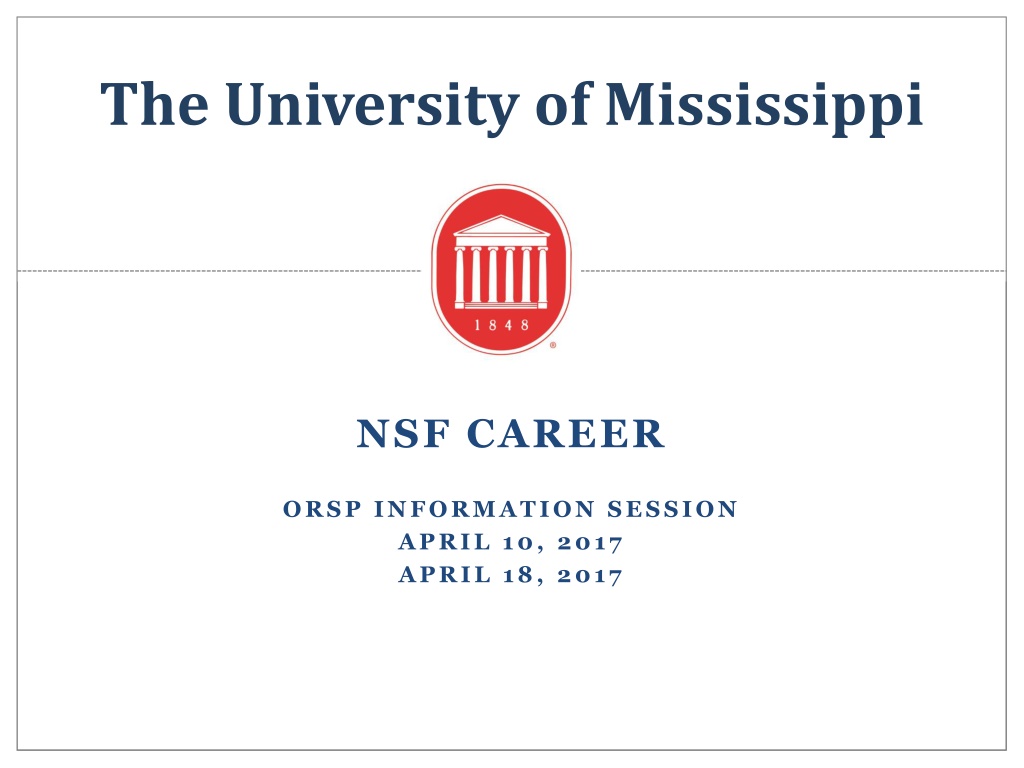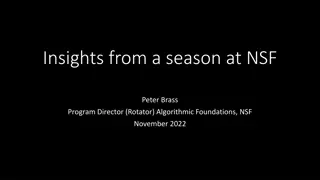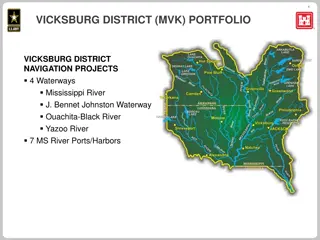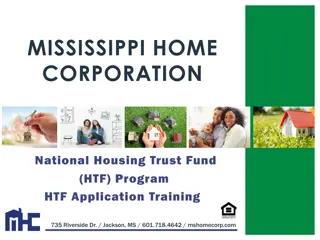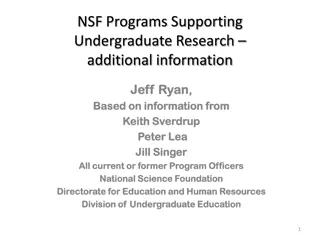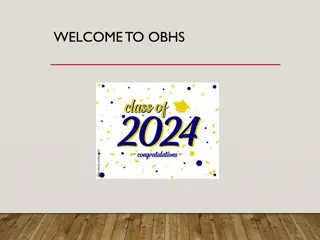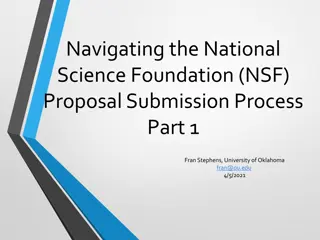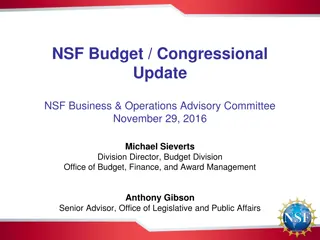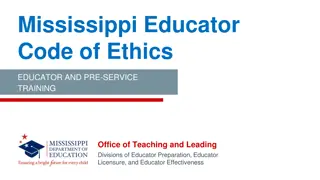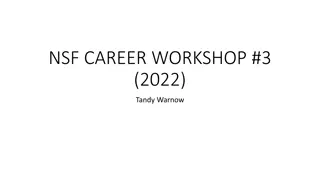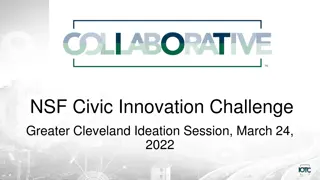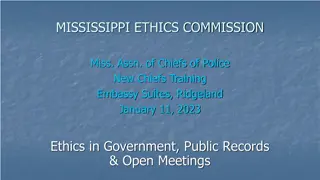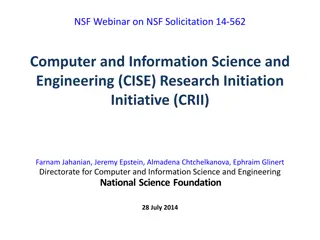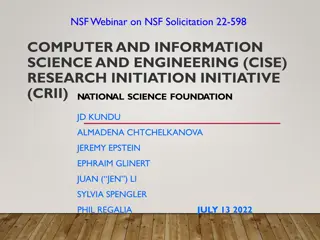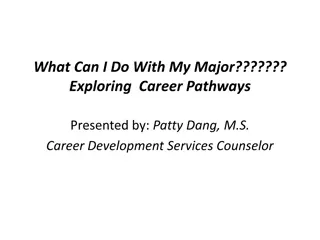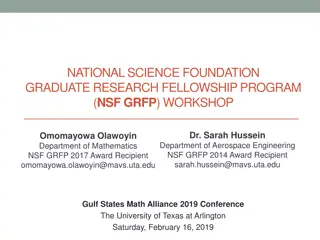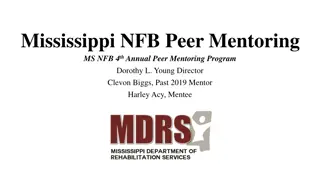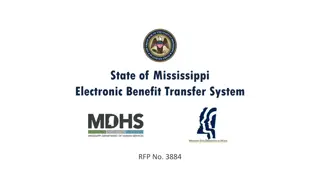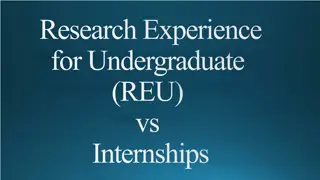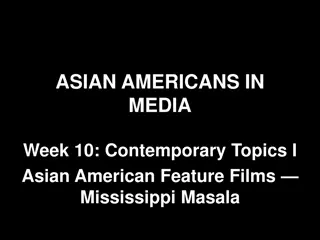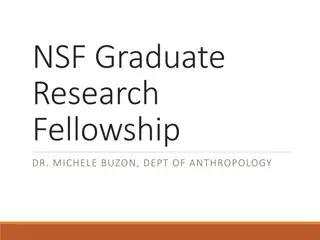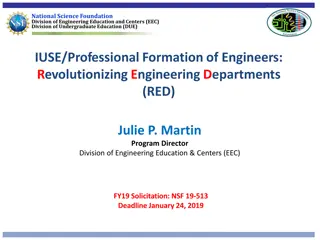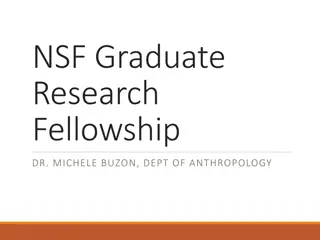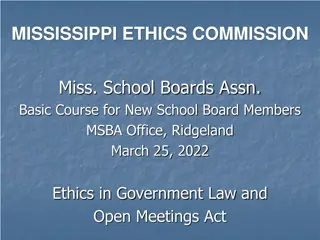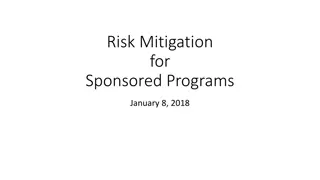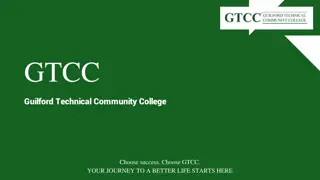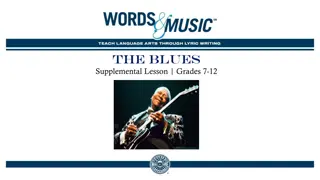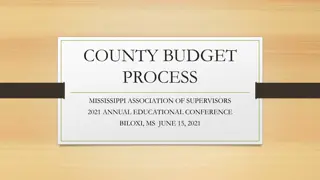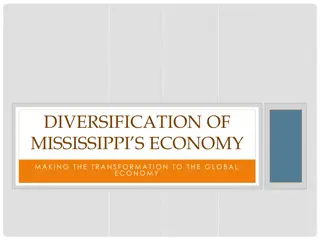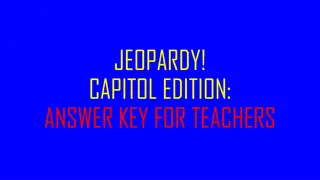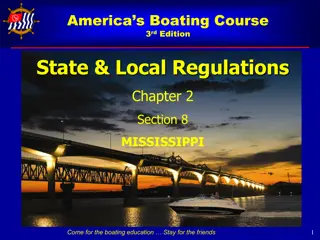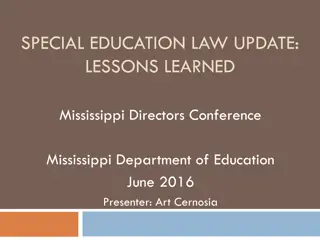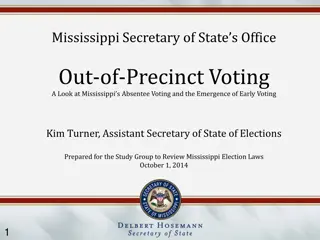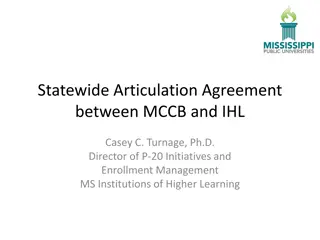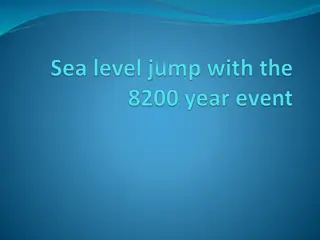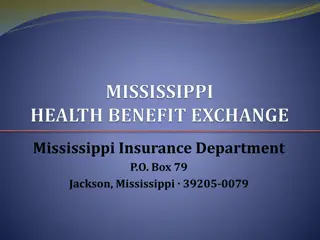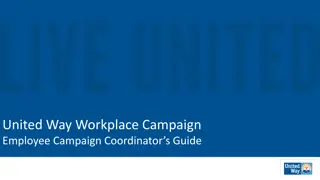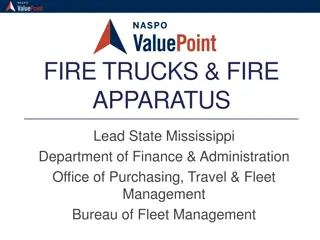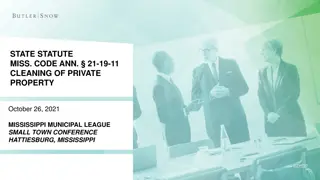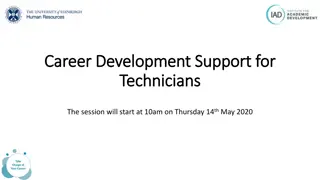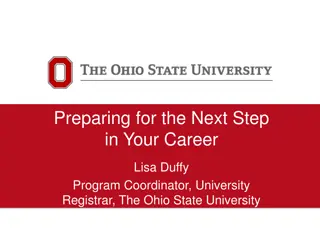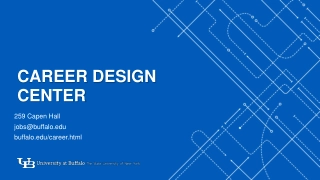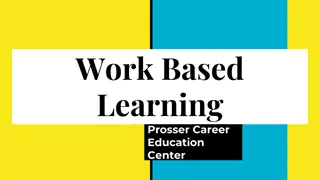NSF CAREER Development Program Overview at University of Mississippi
Information session held at the University of Mississippi regarding the NSF CAREER program, focusing on eligibility, goals, and opportunities for early-career faculty members to integrate research and education. The session included introductions of panelists, an overview of the NSF Faculty Early Career Development Program, and details on the prestigious awards provided to junior faculty. Key topics covered were program goals, eligibility criteria, and the importance of integrating research and education.
Uploaded on Sep 21, 2024 | 0 Views
Download Presentation

Please find below an Image/Link to download the presentation.
The content on the website is provided AS IS for your information and personal use only. It may not be sold, licensed, or shared on other websites without obtaining consent from the author. Download presentation by click this link. If you encounter any issues during the download, it is possible that the publisher has removed the file from their server.
E N D
Presentation Transcript
The University of Mississippi NSF CAREER ORSP INFORMATION SESSION APRIL 10, 2017 APRIL 18, 2017
WELCOME NATHAN HAMMER ASSOCIATE PROFESSOR OF CHEMISTRY & BIOCHEMISTRY ORSP RESEARCH DEVELOPMENT FELLOW
Brief Introductions Panelists: Name, Rank, Department, and Year of CAREER Award Number of Attempts before CAREER Award Attendees Please Stand Up Name, Rank, and Department First NSF CAREER Proposal? Planning for Summer 2017 or 2018? Any prior NSF proposal experience/success? Ever attended an NSF CAREER proposal writing workshop? ORSP and Research Development Fellows Name, title, and role
Overview of NSF Faculty Early Career Development Program JASON HALE OFFICE OF RESEARCH
NSF CAREER The Following Slides Taken from NSF CAREER Slides at https://www.nsf.gov/mps/dms/career _and_pecase_information/career_w ebinar_slides_2017.pdf.
NSF CAREER Faculty Early-Career Development (CAREER) Program Most prestigious awards to help a junior faculty member develop activities that can effectively integrate research and education within the context of his/her organization Education component as important as research
Goals Provide stable support for five years ( 400K in most Directorates BIO, GEO/PLR, ENG are 500K) to allow the career development Build a foundation for a lifetime of integrated contributions to research and education. Integration of research and education. Increase participation of those traditionally underrepresented in science and engineering.
Eligibility Hold a doctoral degree in any field supported by NSF by proposal deadline Be untenured by Oct 1st following proposal deadline Be employed in a tenure-track (or equivalent) position at an eligible institution as an Assistant Professor (by Oct 1st following deadline) Have not previously received a CAREER award Have not had more than two CAREER proposals reviewed Untenured Associate Professors are NOT eligible
Standard NSF review criteria Merit criteria: Potential to advance, if not transform, the frontiers of knowledge; assessment based on appropriate metrics Broader Impacts: potential to benefit society and contribute to the achievement of specific, desired societal outcomes. Review elements: 1. What is the potential for the proposed activity to: a. advance knowledge b. benefit society 2. To what extent do the proposed activities suggest and explore creative, original, or potentially transformative concepts? 3. Is the plan for carrying out the proposed activities well-reasoned, with a mechanism to assess success? 4. How well qualified is the PI and team? 5. Are there adequate resources available to the PI?
Special criteria for CAREER A compelling research plan An innovative but feasible education plan A plan for the effective integration of both sets of activities (evaluation plan is a big plus) Departmental Letter Letters of Collaboration if appropriate A budget that is consistent with the scope of the research and education activities
Basis for decision Peer Review Content of the review is more important than rating Program Officer analyzes: Fairness and substance of the reviews; any technical issues raised (can they be resolved swiftly and easily); reviewer s enthusiasm for the project; any additional feedback from reviewers/panels or other program officers; sometimes also clarification from the PI if needed Portfolio Balance Research and education topics and their integration; potential for transformative impact in both; priority or timeliness of the area of research and systems; demographics of the PI population and diversity of institution types; stage of the career development of the PI; international partnerships
Merit review across NSF divisions Ad hoc + Panel (with other proposals in the Program) most of GEO (AGS uses ad hoc only) BIO and SBE Primarily dedicated CAREER Panels ENG, CISE, HER MPS varies by Division: AST : Panel only; CHE, DMR Mix of ad hoc and panels; DMS mostly panels (2 programs ad hoc only)
Previous UM CAREER Awardees April 10 Information Session Emanuele Berti, Associate Professor of Physics and Astronomy (link to proposal in Box to be shared) Nathan Hammer, Associate Professor of Chemistry and Biochemistry Tammy Goulet, Professor of Biology April 18 Information Session Patrick Curtis, Assistant Professor of Biology Sarah Liljegren, Associate Professor of Biology Nathan Hammer, Associate Professor of Chemistry and Biochemistry Other Awardees Jared Delcamp, Assistant Professor of Chemistry and Biochemistry (those interested in seeing Dr. Delcamp s proposal can e-mail delcamp@olemiss.edu) Amal Dass, Associate Professor of Chemistry and Biochemistry Davita Watkins, Assistant Professor of Chemistry and Biochemistry
Previous UM CAREER Awardees What has the CAREER Award meant to your career? How many tries did it take to be successful? What were the keys to your proposals success? Anything you ve learned as a NSF CAREER Reviewer? Other advice?
Changes Since 2016 Solicitation Support for senior personnel other than the PI that is commensurate with a limited collaborative role in the project is now allowed in PAPPG NSF 17-1 is now in effect
Research Development Fellows ORSP Research Development Fellows Greg Easson, Professor of Geological Engineering, Director of Mississippi Mineral Resources Institute Christian Sellar, Associate Professor of Public Policy Leadership Nathan Hammer, Associate Professor of Chemistry & Biochemistry Mission is to help faculty be more competitive for grant proposals, including but not exclusively interdisciplinary proposals) Available for discussions, enhanced reviews of CAREER proposal ideas, draft proposals, and full proposals E-mail researchfellows@olemiss.edu
Next Steps Read the full CAREER Solicitation and FAQ: https://www.nsf.gov/funding/pgm_summ.jsp?pims_id=503 214 Due Dates for 2016: July 19, 2017 BIO, CISE, EHR July 20, 2017 ENG July 21, 2017 GEO, MPS, SBE View full NSF CAREER Slides at https://www.nsf.gov/mps/dms/career_and_pecase_information/career_webinar_slid es_2017.pdf NSF CAREER Webinar May 22, noon 2pm CDT https://www.nsf.gov/events/event_summ.jsp?cntn_id=191332 Some may let you see their proposals and/or reviews
Next Steps Let your ORSP Program Development Specialist know if you are thinking about submitting in 2016 Discuss your idea with peers/mentors (including Research Development Fellows and/or CAREER Award holders at UM or other institutions) Discuss your idea with Program Officer? (ORSP Faculty Travel Program CFreePO funds available) Watch for nation-wide NSF sponsored CAREER Development Workshops (ORSP Travel Funds) E-mail researchfellows@olemiss.edu for assistance from an ORSP Research Development Fellow (Do this early).
Next Steps Chair s Letter should be started early Proposal should be complete and transmittal submitted to ORSP at least five working days before Sponsor s Due Date At least 15 working days advanced notice requested for ORSP ENHANCED REVIEW service (MORE if you want mentoring from ORSP Research Development Fellows) PAPPG NSF 17-1 is now in effect SF Proposal & Award Policies & Procedures Guide
